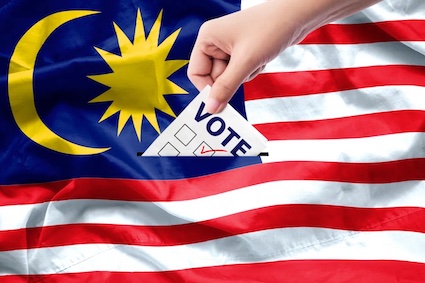Does Malaysia have hope?

Shankar R. Santhiram, Free Malaysia Today
“Hope springs eternal”. I was taught that it is human nature to always find fresh cause for optimism. I suppose this is what Alexander Pope meant when he wrote this line.
For all of us, our lives have been built on hope. But earlier this year, a Harvard poll of young Americans showed that 51% of the respondents said they feel down, depressed or hopeless.
It would be interesting to see what the poll would show if it was conducted in Malaysia, now.
People like to feel optimistic about and in control of where their life is headed. But with this coronavirus pandemic and its seemingly never-ending variants, the future feels difficult and uncertain, and few of us have much control over it, beyond doing our best to keep ourselves and those around us safe.
In Malaysia though, the feeling of hopelessness is further compounded by all sorts of other fears.
The lack of cohesive governance, the nonsensical political horse-trading, the stoking of communal suspicions, the simmering undertones of racial disharmony, the rise of religious fanaticism, the unbridled instances of corruption are just some of the things that make for a real and palpable dearth of hope for many of us.
The last time round we had a general election, Pakatan Harapan, or the “alliance of hope” was mandated to run the country by securing 55.86% of parliamentary seats.
It is such a cruel twist of irony that the alliance Malaysians elected to govern them was called “hope”.
Today, even this hopeful flirtation with Pakatan Harapan is in shambles. Many were so looking forward to the hope-filled birth of “Malaysia Baru” or new Malaysia, only for it to become a rather sour experience.
Of course, it was the shady and scummy collusions of some politicians that led to the wheels coming off that adventure, or rather, misadventure. But you must admit, at least for older Malaysians, it always felt like that was an alliance of strange but opportunistic bedfellows, at best.
But at the end of the day, the will of the people, by way of the popular vote, was simply cast aside by self-serving politicians. This much is a common fact.
It was the manner by which the Pakatan Harapan coalition unravelled that left the people who were so filled with hope, optimism, and buoyancy, completely and utterly flabbergasted.
Interestingly, in 2018, when Malaysians successfully changed a government that enjoyed uninterrupted reign over the country since 1957, there was an 82.32% voter turnout. On the contrary, in the recent state election in Melaka, only 65.85% of eligible voters turned up to exercise their inalienable right.
Perhaps this is an indication of how little hope Malaysians have in the entire political process. And, can you blame anyone who opted to not bother coming out to vote, when their choice was so easily disregarded the last time around?
In a further stunning about turn, having waxed lyrical about how they were unceremoniously pushed out of power by a backdoor government last year, Pakatan Harapan then accepted the very same type of rogue politicians, popularly referred to as “frogs”, into their fold for the Melaka state elections.
For many, it seemed like the people who were expected to bring about the genesis of a new political landscape in Malaysia ended up being no different than those who came before them.
Where is the hope for us then?
From an economic standpoint, our national dialogue these past few weeks has been filled with talk about the rising cost of living in Malaysia. It is a grave problem, especially for the most displaced.
But for our politicians, it is business as usual. Instead of working on solutions at a bipartisan level, they simply use national problems to score points off each other.
Rather than making tough decisions that can have long-term benefits, like opening up some of the prejudicial policies and trade restrictions that are imposed for political reasons, they simply talk about imposing more populist measures like subsidies and price controls.
How then can Malaysians be hopeful?
In my professional life as a leadership coach, when people seek counsel on how to regain hope, I ask them to start by envisioning the life they want. I know that many struggle to hope for a better tomorrow simply because they do not know what it might look like.
Therefore, I often share the idea with them that before they can have hope, it is necessary to first figure out what type of life they imagine as the most desirable.
I also ask them to work on empowering themselves to focus on making things better instead of wallowing in their misfortune.
The most effective way to feel empowered once again is to pick one goal that you still harbour deep inside you, and start working on it. I ask them to shift their mindset from feeling trapped in the present predicament to start planning for how they can change that situation by creating a new experience.
It is time we brought hope back to our lives as Malaysians.
Is it possible to have a common vision of what is the most desirable life we can have in Malaysia? A true vision that is not tainted by those who want to take advantage of our fears. A vision that is inclusive and progressive.
All of us must get empowered by starting to plan for how we will change the current state of affairs, and bring about the Malaysia we all yearn for.
A Malaysia that is just, fair, and free.

